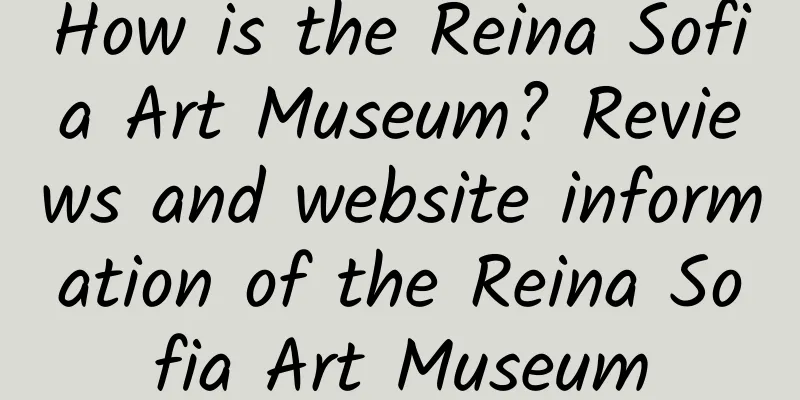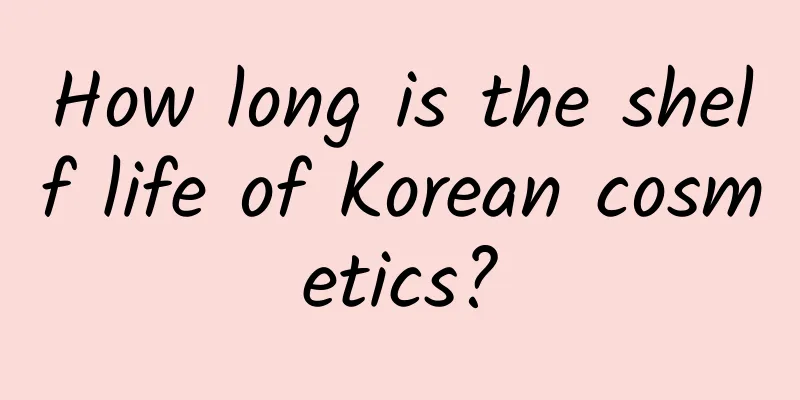How is the Reina Sofia Art Museum? Reviews and website information of the Reina Sofia Art Museum

|
What is the website of the Queen Sofia Art Museum? The Queen Sofia National Art Center Museum (Museo Nacional Centro de Arte Reina Sofía) is an art museum in Spain. It was established in 1992 and is located in Madrid. It mainly collects Spanish art, including works by masters such as Picasso and Dali. Website: www.museoreinasofia.es The Queen Sofia Art Museum, also known as the Queen Sofia National Art Center Museum (Museo Nacional Centro de Arte Reina Sofía), is an important palace in the hearts of art lovers in Spain and around the world. This museum not only carries the rich art history of Spain, but also serves as a display platform for modern and contemporary art. History and Background of the MuseumThe Queen Sofia Art Museum was established in 1992 and is located in the heart of Madrid, the capital of Spain. Its establishment marks Spain's emphasis on and promotion of modern art. The museum's name comes from Queen Sofia of Spain, who is not only a symbol of the royal family, but also an active supporter of culture and art. The museum's building itself is a work of art. It was originally a hospital, but was transformed into a modern art museum by the famous architect Antonio Fernández Alva. The museum's extension was designed by French architect Jean Nouvel, and its unique architectural style contrasts sharply with the original building, while also adding more exhibition space to the museum. Museum Collections and ExhibitionsThe Reina Sofia Museum is famous for its rich collection of Spanish art, especially modern and contemporary art from the 20th century. The museum's collection covers many art schools and styles from the late 19th century to the early 21st century, including Cubism, Surrealism, Abstract Expressionism, etc. One of the most famous collections in the museum is Picasso's "Guernica". This painting was created by Picasso to protest the bombing of the Basque town of Guernica by Nazi Germany during the Spanish Civil War. It is a symbol of anti-war and peace. In addition to "Guernica", the museum also has other important works by Picasso, such as "Les Demoiselles d'Avignon" and "Weeping Woman". In addition to Picasso, the museum also houses works by other Spanish art masters such as Salvador Dali, Joan Miró, Francis Goya, etc. Dali's "The Persistence of Memory" and Miró's "Constellations" series are among the highlights of the museum. The museum not only displays works by local Spanish artists, but also collects works by international artists such as Mark Rothko, Jackson Pollock, Andy Warhol, etc. The works of these international artists add more global perspectives to the museum, making it a truly international art exchange platform. Temporary exhibitions and events at the museumIn addition to permanent exhibitions, the Reina Sofia Museum also regularly hosts temporary exhibitions that showcase artworks from around the world. These temporary exhibitions usually focus on a specific theme or artist, providing visitors with an opportunity to learn more about different art schools and styles. The museum also organizes various art activities such as lectures, seminars, workshops, etc., aiming to promote the public's understanding and appreciation of modern and contemporary art. These activities not only attract art lovers, but also provide a platform for communication and cooperation between artists and scholars. Museum Education and Public ProgramsThe Reina Sofia Art Museum attaches great importance to art education and public projects. The museum has a dedicated education department responsible for developing and implementing various educational programs, including school visits, teacher training, family activities, etc. These programs aim to stimulate the creativity and imagination of the public through art education and cultivate their interest and love for art. The museum also cooperates with various universities and research institutions to carry out art research and academic exchanges. These cooperative projects not only enrich the museum's academic resources, but also provide new perspectives and methods for art research. Architecture and Space Design of MuseumsThe building of the Reina Sofia Art Museum is a work of art in itself. The museum's architectural design fully considers the needs of art display and provides visitors with spacious and bright exhibition space. The museum's extension was designed by French architect Jean Nouvel. Its unique architectural style contrasts sharply with the original building and also adds more exhibition space to the museum. The interior design of the museum also pays great attention to the visitor experience. The layout of the exhibition space is reasonable, and the exhibits are displayed in a scientific way, so that the audience can easily appreciate each work of art. The museum also has facilities such as a rest area, a cafe, and a bookstore, providing a comfortable visiting environment for the audience. The Museum's Digital and Online ResourcesWith the development of technology, the Queen Sofia Art Museum is also constantly exploring the possibilities of digital and online resources. The museum's official website (www.museoreinasofia.es) provides a wealth of online resources, including virtual exhibitions, online collections, educational materials, etc. These online resources not only provide visitors who cannot visit the museum in person with the opportunity to learn about art, but also facilitate art research. The museum also actively uses social media platforms to interact with global audiences. Through platforms such as Facebook, Twitter, and Instagram, the museum can timely release exhibition information, event announcements, art news, etc., attracting more audience attention and participation. Museum visitor informationThe Reina Sofia Art Museum is open all year round and welcomes visitors from all over the world. The museum's opening hours and ticket information can be found on its official website. The museum also provides guided tours in multiple languages, so that visitors of different languages can better understand the exhibits and exhibitions. The museum is conveniently located in the heart of Madrid, with many subway stations and bus stops around it. Visitors can choose to go to the museum by subway, bus, taxi and other means of transportation. There are also many hotels, restaurants, shops and other facilities around the museum, providing visitors with complete supporting facilities. Museum members and supportersThe Reina Sofia Art Museum has a membership system, and welcomes individuals and institutions to become members. Members can enjoy a variety of benefits and privileges, such as free visits, priority participation in events, discounted shopping, etc. The museum also has a supporter program to encourage companies and individuals to support the development of the museum through donations and sponsorships. The members and supporters of a museum are not only important resources for the museum, but also a bridge between the museum and the public. Through the participation of members and supporters, the museum can better realize its mission and promote the development and dissemination of art. The future of museumsThe Reina Sofia Museum has made remarkable achievements over the past few decades and has become an important force in the Spanish and global art world. Looking to the future, the museum will continue to be committed to the development of art collection, exhibitions, education, research, and other aspects, and promote the dissemination and exchange of modern and contemporary art. The museum plans to further expand its collection in the coming years, adding more works by international artists. At the same time, the museum will strengthen cooperation with domestic and foreign art institutions to hold more high-quality exhibitions and activities. The museum will also continue to explore the possibilities of digital and online resources to provide more art experiences for global audiences. In short, the Reina Sofia Art Museum is not only a symbol of Spanish art, but also an important platform for global art exchange. Through continuous efforts and innovation, the museum will continue to provide the public with rich art experiences and promote the development and dissemination of art. The social responsibility and impact of museumsAs a national art museum, the Queen Sofia Art Museum not only undertakes the responsibility of art exhibition and education, but also actively fulfills its social responsibility. The museum gives back to the society and helps the disadvantaged groups by holding various public welfare activities, such as charity auctions and community art projects. The museum is also committed to environmental protection and sustainable development. In architectural design and daily operations, the museum has adopted a variety of environmental protection measures, such as energy-saving lighting, waste recycling, green buildings, etc., to reduce the impact on the environment. The museum also promotes environmental protection concepts and raises the public's environmental awareness through exhibitions and activities. The internationalization and global influence of museumsThe Reina Sofia Art Museum is not only well-known in China, but also has an important influence internationally. The museum maintains close cooperation with major art institutions around the world and regularly holds international exhibitions and exchange activities. Through these activities, the museum not only showcases Spain's artistic achievements, but also promotes exchanges and cooperation in the international art world. The museum also actively participates in international art fairs and exhibitions, such as the Venice Biennale and Art Basel, to showcase the works of Spanish artists and enhance the international influence of Spanish art. Through these international activities, the museum provides more opportunities for Spanish artists to showcase their works and also provides a window for global audiences to understand Spanish art. Challenges and opportunities for museumsAlthough the Reina Sofia Museum has made remarkable achievements, it also faces some challenges in its future development. First, as the art market continues to change, the museum needs to constantly adjust its collection and exhibition strategies to adapt to new art trends and audience needs. Second, the museum still needs to further explore digitalization and online resources to meet the diverse needs of global audiences. However, these challenges also bring new opportunities. Through continuous innovation and reform, museums can further enhance their influence and become leaders in the global art world. Museums can also promote the development and exchange of global art by strengthening cooperation with international art institutions and expanding their international networks. ConclusionThe Reina Sofia Museum is not only a symbol of Spanish art, but also an important platform for global art exchange. Through continuous efforts and innovation, the museum will continue to provide the public with rich art experiences and promote the development and dissemination of art. Whether you are an art lover, researcher, or ordinary audience, you can find your own art world in the Reina Sofia Museum. The future of the museum is full of hope and challenges, but we believe that with the efforts of all staff, the Reina Sofia Museum will continue to contribute to the global art world and become an important chapter in art history. |
>>: How is Japan Cargo Airlines? Japan Cargo Airlines reviews and website information
Recommend
The efficacy and function of red wine foot bath
Everyone must be very familiar with red wine. It ...
The effects and functions of grapefruit enzymes Benefits of eating grapefruit enzymes
Grapefruit is usually long and oval in shape. The...
How is IELTS? IELTS assessment and website information
What is IELTS? The International English Language ...
How to pickle ginger with soy sauce
Pickled ginger in soy sauce is a famous dish in H...
The powerful effect of anthocyanins
In life, people often hear the name of anthocyani...
The nutritional value of Arctic sweet shrimp and the effects and functions of Arctic sweet shrimp
Nutritional value of Arctic sweet shrimp Arctic s...
How is GaranceDore Fashion Blog? GaranceDore Fashion Blog Review and Website Information
What is GaranceDore Fashion Blog? This website is ...
How to eat green radish Common eating techniques for green radish
Green radish is a kind of radish named because it...
How to eat dried shiitake mushrooms How to eat wet shiitake mushrooms
The mushrooms we eat include dried mushrooms and ...
The efficacy and function of Huangpi and the taboos of Huangpi
Huangpi, also known as Huangpi fruit or Huangpi m...
How to soak green fruit in water? The correct way to soak green fruit in water
Green fruit is the mature fruit of the olive tree...
What are the benefits of drinking grapefruit tea? What are the effects and functions of drinking grapefruit tea?
Grapefruit tea is a health tea made from grapefru...
Can I drink milk if I have diarrhea? Who is not suitable to drink milk?
Milk is the favorite food of many people. Some pe...
How is Euronet? Euronet review and website information
What is Euronet? Euronet is a well-known Chinese p...
How is the Catholic University of Leuven? Reviews and website information of the Catholic University of Leuven
What is the website of the Catholic University of ...









